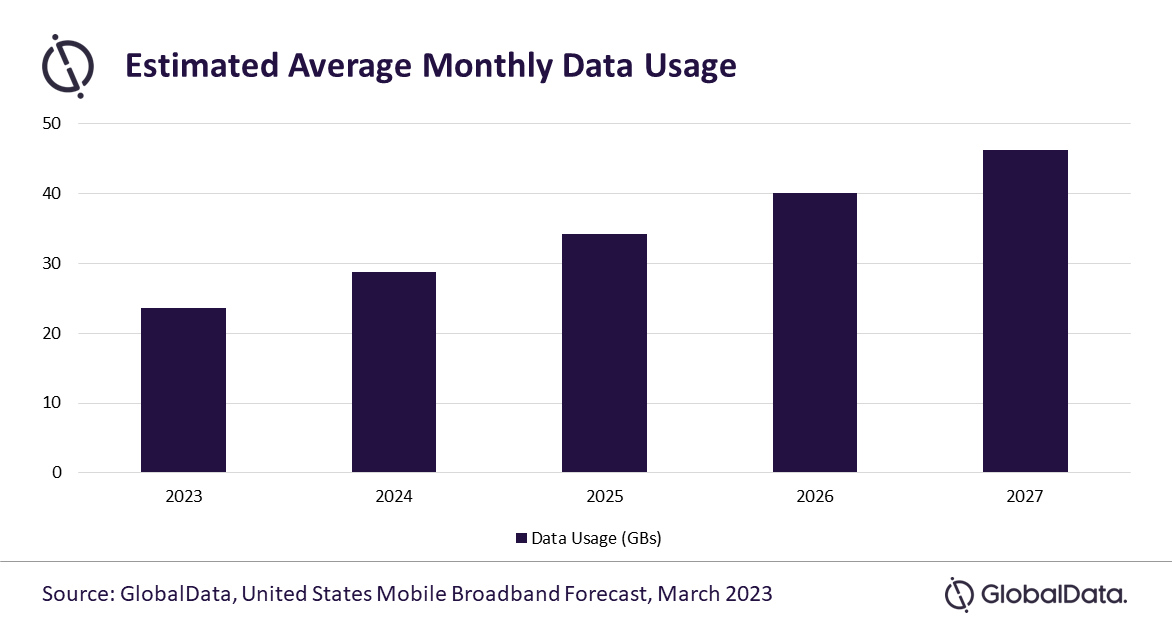The US efforts to allocate broadband spectrum have hit a snag due to recent bureaucratic obstacles and missteps. Unfortunately, the Senate’s inability to extend the Federal Communication Commission’s (FCC) spectrum auction authority has created uncertainty about the timeline for developing a comprehensive roadmap for the country’s spectrum future. As a result, the current state of the US spectrum pipeline has become unclear, says GlobalData, a leading data and analytics company.
RELATED: NCC hosts stakeholders as its prepares spectrum guidelines for use of drones
GlobalData’s report, “The US Spectrum Pipeline Is Currently More Clown Car Than Cogent Strategy,” emphasizes that with video, social media, gaming, and communications applications only getting more data-intensive, the average monthly mobile data usage for a subscription in the US will increase from 23.6 gigabytes (GBs) in 2023 to 46.3 GBs in 2027.
Charles Garrett, Senior Global Telecom Consumer Services Analyst at GlobalData, comments: “The legislature dropping the ball on renewing the FCC’s spectrum auction authority is jamming up all manner of government spectrum business, including long-term agenda items like identifying and repurposing relevant spectrum bands and short-term requirements like handing over licenses for assets purchased in 2022.”


Garrett adds: “The ongoing trends in streaming and short-form video as well as the more nascent cloud gaming space will see that usage spike continue. Consequently, carriers will need to be able to lash together multiple spectrum ranges if they hope to beat usage to the spot.”
Some factors would conspire to make the timing of this latest setback seem fortuitous: The US telecom industry at large is still hustling to light up spectrum assets acquired in the last few rounds of auction activity, and dire macroeconomic winds would likely mute operator appetite for near-term spectrum spending. Yet, that fails to take into consideration not only immediate issues such as fulfilling license obligations for auctions wrapped up in 2022, but also just how long-sighted a process spectrum allocation is.
Garrett continues: “Successfully repurposing spectrum is a years-long ordeal that requires coordination and earnest cooperation across a variety of organizations and industries, many of which too often work at cross-purposes. The US wireless operators, which are only just starting to see some of the advantages touted (too) early in 5G’s hype cycle, can ill afford a prolonged spectrum drought.”
Furthermore, the uncertainty surrounding the future of the FCC’s spectrum authority significantly undercuts recent overtures from the Biden administration and the National Telecommunications and Information Administration (NTIA) regarding plans for a ‘national spectrum strategy.’
Garrett concludes: “While the government is way overdue in recognizing the need for more concerted coordination and collaboration in developing and auctioning spectrum assets, launching a national spectrum strategy at a time when no agency has established, long-term auction authority feels like the wrong order of operations. A cogent national approach is fundamentally necessary, of course, but so too is an engine to drive it.”






























